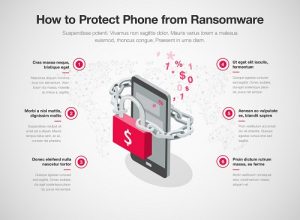 Ransomware attacks are no longer a threat exclusive to large corporations. In recent years, small businesses have become prime targets for cybercriminals who see them as vulnerable and often underprepared. With attacks becoming more sophisticated and frequent, protecting your data is no longer optional — it’s critical.
Ransomware attacks are no longer a threat exclusive to large corporations. In recent years, small businesses have become prime targets for cybercriminals who see them as vulnerable and often underprepared. With attacks becoming more sophisticated and frequent, protecting your data is no longer optional — it’s critical.
The Current Threat Landscape
As of 2025, ransomware attacks are evolving in both scale and complexity. Some of the most active ransomware variants affecting small businesses include:
- LockBit 3.0 – This ransomware-as-a-service (RaaS) operation has been responsible for a high volume of global attacks, often demanding millions in ransom.
- Black Basta – Known for double-extortion tactics, stealing data before encryption and threatening to leak it if the ransom isn't paid.
- Akira – A newer strain targeting small and mid-sized businesses across various sectors, exploiting weak VPN credentials and outdated software.
- Phobos – Still prevalent in attacking small, local businesses by encrypting files and demanding modest, “payable” ransoms.
Why Small Businesses Are at Risk
Small businesses are attractive to cybercriminals because they often:
- Lack robust cybersecurity defenses
- Use outdated software or operating systems
- Don’t have dedicated IT staff
- Skip regular data backups
- Fall behind on employee cybersecurity training
The result? A perfect storm for cyberattacks that can lead to costly downtime, data loss, legal trouble, and reputational damage.
How Cybercriminals Deceive Employees
One of the most effective tools in a hacker's arsenal is social engineering — the act of tricking people into giving up sensitive information or access. Cybercriminals often impersonate trusted individuals or organizations, such as:
- Government Agencies (IRS, FBI, SSA): Attackers send official-looking emails or letters demanding urgent action, often threatening legal consequences.
- HR Departments: Hackers pose as HR staff requesting employees to verify personal information, update direct deposit details, or sign fake documents.
- IT Support or Tech Vendors: Impersonators claim there’s an issue with your account or security settings and ask for login credentials or remote access.
- Executives (CEO Fraud/Business Email Compromise): Employees receive emails seemingly from high-level executives instructing them to make urgent payments or transfer sensitive data.
- Banks or Payment Platforms (PayPal, Stripe): Fake alerts about "suspicious activity" or "account restrictions" prompt recipients to click phishing links.
Remember: If it feels urgent, threatening, or too good to be true — it's probably a scam.
How to Protect Your Business from Ransomware
 Invest in Multi-Layered Security
Invest in Multi-Layered Security- Backup Your Data — Frequently
- Patch and Update Software
- Enable Multi-Factor Authentication (MFA)
- Train Your Employees
- Develop an Incident Response Plan
Don’t Wait Until It’s Too Late
Cybercriminals don’t discriminate — they exploit opportunity. At Integrated Technology Systems, we specialize in helping small businesses like yours stay ahead of cyber threats with tailored security solutions, proactive monitoring, and comprehensive backup systems.
Ready to secure your business? Contact Integrated Technology Systems today for a free cybersecurity assessment. Let us help you build a smarter, safer IT environment — before ransomware strikes. Call us now or visit our website to get started!
Integrated Technology Systems
6 East 45th Street, Suite 400
New York, NY 10017
212-750-5420
https://www.itsnyc.com



